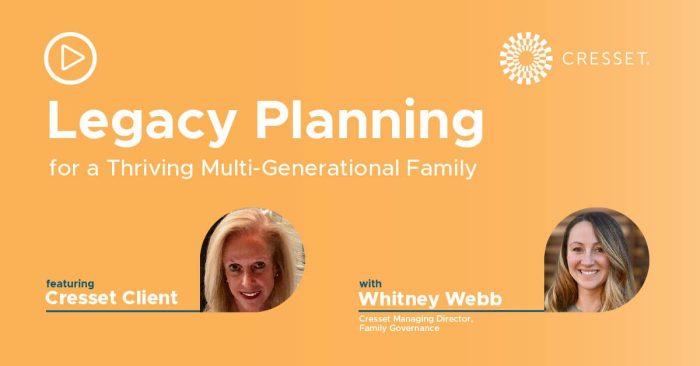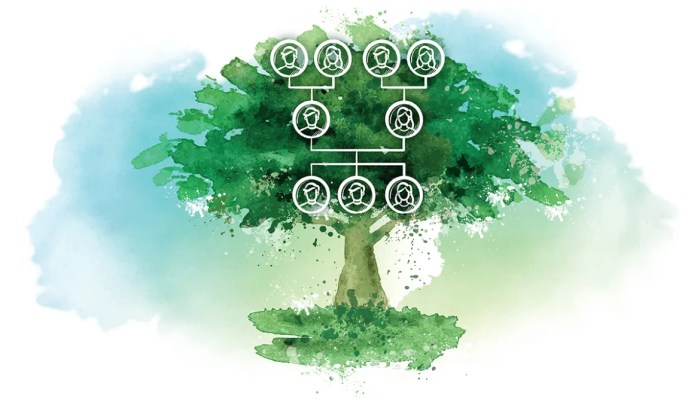Delving into the realm of Smart Planning for Multi-Generation Families, this introduction sets the stage for an enlightening discussion on the importance of meticulous planning. The intricacies of planning for multiple generations unfold in a way that captivates readers, offering a comprehensive view of the topic at hand.
The subsequent paragraph will delve deeper into the specifics of the topic, shedding light on key elements and considerations essential for successful planning.
Importance of Smart Planning for Multi-Generation Families
Planning for multiple generations within a family is crucial for ensuring financial stability, unity, and smooth transitions of wealth and assets. Without proper planning, families can face various challenges that may lead to conflicts, financial struggles, and misunderstandings among family members.
Benefits of Smart Planning
- Ensure smooth wealth transfer: A well-thought-out plan can help in transferring wealth and assets from one generation to the next without any disputes or confusion.
- Financial security: Planning can ensure that all family members, including children and grandchildren, are financially secure and have a solid foundation for their future.
- Promote family unity: Planning can foster unity and understanding among family members by clearly outlining roles, responsibilities, and expectations for each generation.
- Minimize tax implications: Strategic planning can help minimize tax liabilities for both the current and future generations, maximizing the wealth passed down to heirs.
Challenges without Proper Planning
- Legal disputes: Without a clear plan, legal disputes may arise among family members regarding the distribution of assets, leading to costly court battles.
- Financial instability: Lack of planning can result in financial instability for future generations, leaving them unprepared to manage inherited wealth.
- Family conflicts: Misunderstandings and conflicts can arise when there is no plan in place, leading to strained relationships and division within the family.
- Risk of wealth erosion: Without proper planning, there is a risk of wealth erosion over generations due to poor financial management or lack of investment strategies.
Key Elements of Smart Planning
Smart planning for multi-generation families involves incorporating essential components to ensure a successful strategy that meets the needs of all family members. Tailoring the plan to cater to the unique requirements of each generation is crucial, along with fostering open communication for effective implementation.
Identification of Family Goals and Values
One key element of smart planning is identifying and understanding the overarching goals and values of the family. This involves discussing and determining what is important to each generation, whether it be financial security, education, healthcare, or legacy preservation.
Creation of a Comprehensive Estate Plan
A comprehensive estate plan is essential in smart planning for multi-generation families. This includes drafting wills, establishing trusts, designating beneficiaries, and planning for incapacity. Each generation may have different needs and desires, so tailoring the estate plan accordingly is vital.
Financial Planning and Investments
Financial planning plays a significant role in smart planning for multi-generation families. It involves creating a budget, saving for future expenses, investing wisely, and ensuring financial stability for all family members. Different generations may have varying financial goals, so flexibility in the financial plan is crucial.
Education and Career Development
Supporting education and career development for each generation is essential in smart planning. This may include funding college tuition, providing mentorship opportunities, and encouraging professional growth. Understanding the educational and career aspirations of each generation helps tailor the plan accordingly.
Regular Family Meetings and Communication
Communication is key in successful planning for multi-generation families. Regular family meetings provide a platform to discuss goals, address concerns, and make decisions collectively. Open and honest communication fosters trust and ensures that everyone's voice is heard in the planning process.
Financial Considerations

When it comes to multi-generation families, financial planning takes on a whole new level of complexity compared to individual or nuclear families. With multiple generations involved, there are unique challenges and considerations that need to be addressed to ensure financial stability for everyone.
Differences in Financial Planning
Financial planning for multi-generation families requires a more holistic approach that considers the needs and goals of each generation involved. Unlike individual or nuclear families, where the focus is primarily on the immediate family unit, multi-generation families need to account for long-term financial sustainability across different age groups.
- Consider the financial needs of both younger and older generations.
- Plan for potential healthcare costs and long-term care for elderly family members.
- Ensure there is a balance between supporting younger family members and saving for retirement.
Managing Finances Effectively
Managing finances effectively across different generations requires open communication and collaboration among family members. Setting clear financial goals and establishing a sustainable financial plan can help ensure that everyone's needs are met.
- Have regular family meetings to discuss financial matters and goals.
- Allocate resources based on priorities and needs of each generation.
- Encourage financial literacy and education for all family members.
Setting Financial Goals
Setting financial goals is essential for multi-generation families to work towards a common objective and ensure financial stability for everyone involved
- Identify short-term and long-term financial goals for the family.
- Consider factors like education expenses, retirement savings, and estate planning.
- Regularly review and adjust financial goals as family dynamics and needs change.
Estate Planning and Inheritance
Estate planning plays a crucial role in the context of multi-generation families as it involves the transfer of assets, wealth, and properties from one generation to the next. It helps ensure that the wishes of the estate owner are carried out effectively and that the distribution of assets is done in a fair and organized manner.
Ensuring Fair Distribution
One way to ensure fair distribution of assets and wealth among generations is by clearly outlining a comprehensive estate plan. This plan should include details on how different assets will be distributed, taking into account the needs and circumstances of each family member.
It is important to communicate openly with all family members about the decisions made regarding inheritance to avoid any misunderstandings or conflicts.
Minimizing Conflicts and Disputes
Smart planning can help minimize conflicts and disputes related to inheritance by addressing potential issues proactively. This can be achieved by seeking professional advice from estate planning experts who can assist in creating a solid plan that considers all possible scenarios and legal implications.
Additionally, having open and transparent communication within the family regarding the estate plan can help prevent misunderstandings and disagreements in the future.
Housing and Living Arrangements
Living arrangements for multi-generation families play a crucial role in the overall well-being and harmony of the household. It is essential to explore various options and understand the benefits and challenges of accommodating multiple generations under one roof.
Accommodating Multiple Generations
- Consider creating separate living spaces within the same house to provide privacy and independence for each generation.
- Explore the possibility of building an accessory dwelling unit (ADU) on the property to accommodate additional family members.
- Discuss the option of shared living arrangements where each generation contributes to household expenses and responsibilities.
Benefits and Challenges
- Benefits: Enhanced family bonding, shared caregiving responsibilities, financial savings through shared expenses.
- Challenges: Potential conflicts over space and privacy, differences in lifestyle and routines, the need for effective communication and boundary-setting.
Creating a Harmonious Environment
- Establish clear expectations and boundaries regarding shared spaces, responsibilities, and decision-making within the household.
- Encourage open communication and regular family meetings to address any issues or concerns that may arise.
- Promote respect for each other's differences and individuality while fostering a sense of unity and support among family members.
Healthcare and Long-Term Care Planning

Healthcare planning is a crucial aspect of smart planning for multi-generation families. It involves preparing for the medical needs of family members across different age groups and ensuring access to quality healthcare services when required.Long-term care planning is essential to address the potential need for ongoing assistance with daily activities as family members age.
It is important to develop strategies to manage long-term care needs effectively and sustainably for all generations involved.
Managing Healthcare Decisions and Resources
- Establish open communication within the family to discuss healthcare preferences and decisions.
- Research and explore healthcare options, including insurance coverage, healthcare providers, and specialized services.
- Consider creating advance directives and appointing a healthcare proxy to ensure your wishes are followed in case of incapacitation.
- Stay informed about available resources and support systems for elderly family members, such as home care services, assisted living facilities, and nursing homes.
Financial Planning for Healthcare
- Include healthcare expenses in your financial plan and consider setting up health savings accounts or long-term care insurance.
- Explore government programs and benefits that can help offset healthcare costs for elderly family members, such as Medicare and Medicaid.
- Consult with a financial advisor to assess your healthcare needs and develop a sustainable financial strategy for healthcare expenses.
Closing Summary

Concluding our exploration of Smart Planning for Multi-Generation Families, we reflect on the critical aspects discussed and emphasize the necessity of proactive planning for the well-being of all family members. The insights shared serve as a beacon for families seeking to navigate the complexities of multi-generational planning with confidence and foresight.
Expert Answers
What are some common challenges faced by multi-generation families in the planning process?
Some challenges include differing financial priorities across generations, conflicts in decision-making, and ensuring fair distribution of assets.
How can communication play a key role in successful multi-generation family planning?
Effective communication fosters understanding, alignment of goals, and conflict resolution among family members, enhancing the overall planning process.






